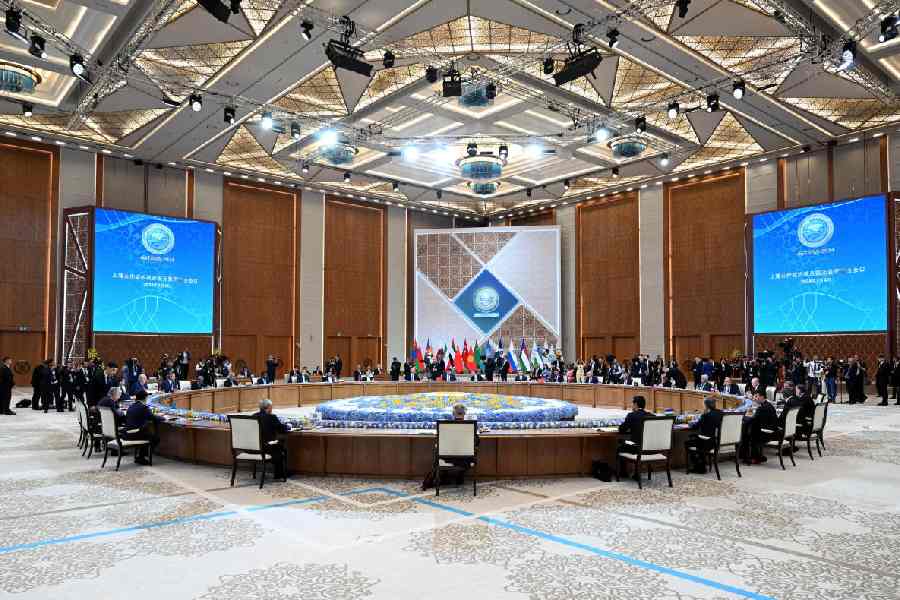Respect for sovereignty and territorial integrity is essential for connectivity and infrastructure projects, India said on Thursday, in an apparent reference to China which is engaged in hotly contested territorial disputes with several countries.
Delivering Prime Minister Narendra Modi's remarks at the Shanghai Cooperation Organisation Summit here in the Kazakh capital, Astana, External Affairs Minister S Jaishankar said the SCO occupies a prominent place in India's foreign policy.
He said the summit comes in the backdrop of pandemic impact, ongoing conflicts, rising tensions, trust deficits and an increasing number of hotspots around the world. "These events have put significant strain on international relations and global economic growth. They have aggravated some of the problems that have emanated from globalisation. Our gathering is aimed at finding common ground to mitigate the consequences of these developments," Jaishankar said.
He said economic development requires robust connectivity.
"That can also pave the way for cooperation and trust between our societies. Respect for sovereignty and territorial integrity is essential for connectivity and infrastructure projects. So too are non-discriminatory trade rights and transit regimes. The SCO needs to deliberate seriously on these aspects," he emphasised.
China has invested billions in various power projects and road networks in Pakistan under the USD 65 billion China-Pakistan Economic Corridor (CPEC) project.
The CPEC, which connects Gwadar Port in Pakistan's Balochistan with China's Xinjiang province, is the flagship project of China's ambitious Belt and Road Initiative (BRI). The BRI is seen as an attempt by China to further its influence abroad with infrastructure projects funded by Chinese investments across the world.
The CPEC is opposed by India as it is being laid through Pakistan-occupied Kashmir (PoK).
China is doling out huge sums of money for infrastructure projects in countries from Asia to Africa and Europe through its BRI. The US' previous Donald Trump administration had been extremely critical of the BRI and was of the view that China's "predatory financing" is leaving smaller countries under huge debt endangering their sovereignty.
China has also been flexing its muscles in the strategically vital region and is also engaged in hotly contested territorial disputes in both the South China Sea (SCS) and the East China Sea (ECS). Chinese naval ships and submarines are also active in the Indian Ocean.
The SCO is a principle-based organisation, whose consensus drives the approach of its member states, Jaishankar said.
"At this time, it is particularly noteworthy that we are reiterating mutual respect for sovereignty, independence, territorial integrity, equality, mutual benefit, non-interference in internal affairs, non-use of force or threat of use of force as a basis for our foreign policies. We have also agreed not to take any measures contrary to the principles of state sovereignty and territorial integrity," he said.
Except for the headline, this story has not been edited by The Telegraph Online staff and has been published from a syndicated feed.










